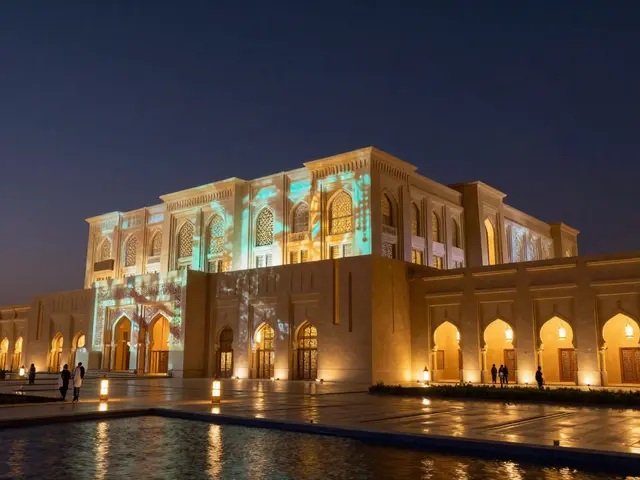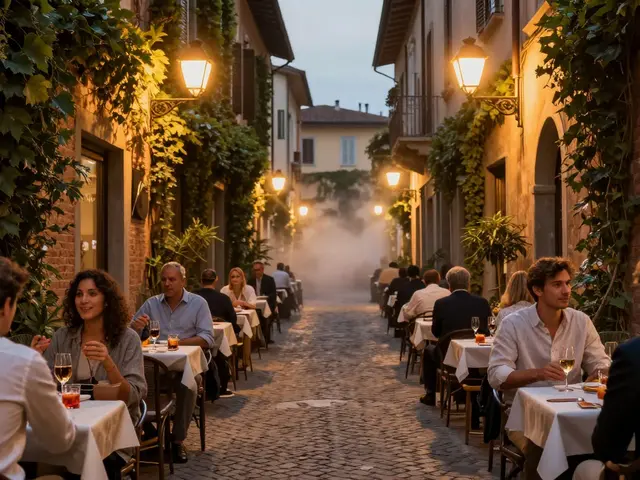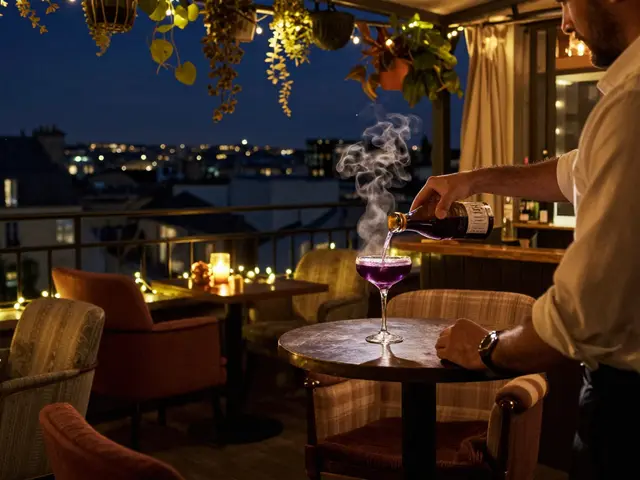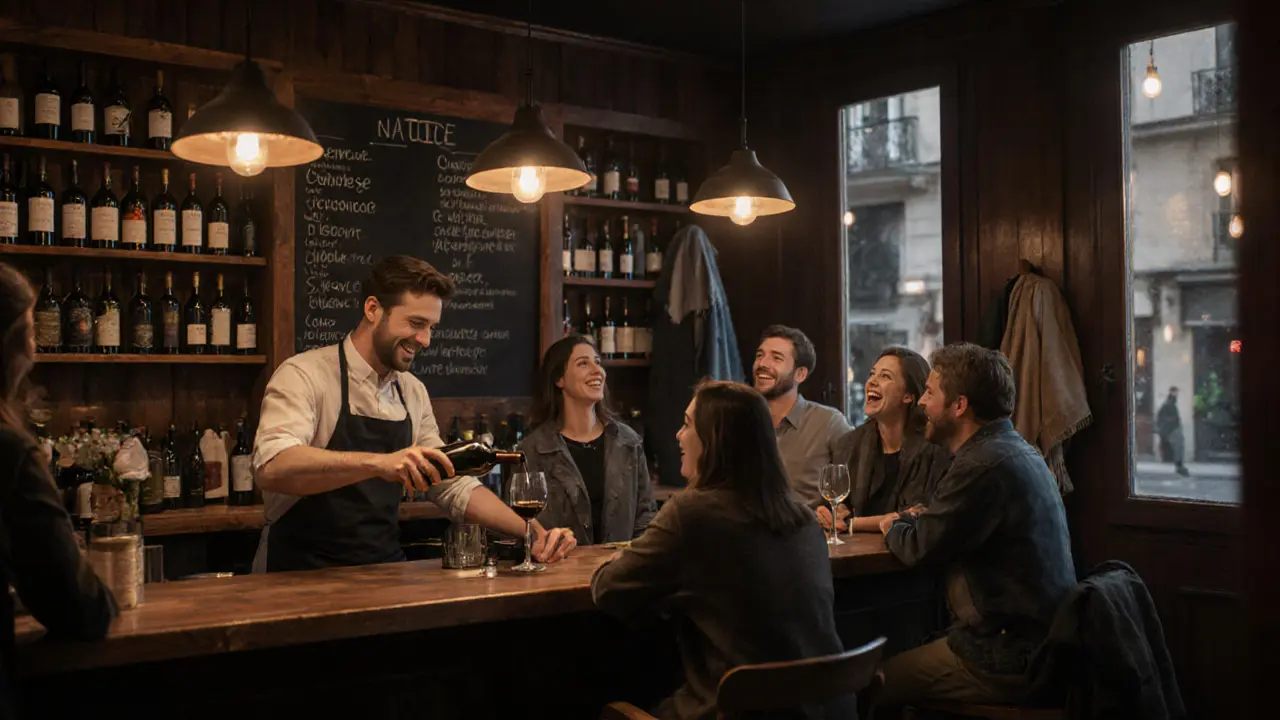
Paris after dark isn’t just about the Eiffel Tower glowing-it’s about hidden courtyards, jazz basements, and wine bars where the bartender knows your name.
You’ve seen the postcards. The cafés on Montmartre. The couples holding hands under the bridge. But when the sun sets, Paris transforms. Not into a tourist trap, but into a living, breathing party that locals have been perfecting for decades. If you want to experience it the right way-no velvet ropes, no overpriced cocktails, no fake “Parisian vibe”-you need to know where to go.
Most visitors stick to Saint-Germain-des-Prés or Le Marais because they’re on maps. But the real Paris nightlife? It’s tucked into narrow alleys behind bookshops, in former laundromats turned speakeasies, and on rooftop terraces where the view isn’t the point-it’s the conversation.
Start with a wine bar, not a club
Parisians don’t start their night at a dance floor. They start with wine. And not the kind you find in tourist restaurants with English menus and €18 glasses. Look for places like Le Verre Volé a neighborhood wine bar in the 10th arrondissement that serves natural wines by the glass and pairs them with charcuterie from local producers. The staff don’t speak English unless you ask. The music is French indie. The crowd? Locals in scarves and jeans, sipping slowly, talking loudly.
Try La Cave des Tuileries a tiny, no-frills wine bar near the Tuileries Garden that opened in 1982 and still has the same owner behind the counter. They don’t have a website. You walk in, point at the bottle you like, and they pour it. No reservations. No menu. Just wine, cheese, and a quiet hum of chatter.
This is how Parisians unwind. Not with shots, but with sips. Not with loud music, but with laughter. You’ll leave after two glasses, not three hours. And you’ll feel more Parisian than if you’d danced until 3 a.m.
Find the hidden clubs-no bouncers, no dress code
Paris doesn’t have a single club district. It has dozens of tiny, unmarked venues that only locals know about. The trick? Go where the locals go after midnight.
Le Baron a once-famous club that lost its glamor but still draws a real crowd on weekends with eclectic music and a mix of artists, models, and students is still open, but you’ll find better energy at Rouge Bonbon a basement club in the 11th arrondissement with no sign, no website, and a door that only opens after 1 a.m. when someone inside buzzes you in. Inside, it’s dim, sweaty, and alive. The DJ spins everything from French house to Afrobeat. The drinks? €7. The vibe? Authentic.
Another spot: Le Trésor a former bank vault turned underground club in the 18th arrondissement with industrial decor and a sound system that makes your chest vibrate. It’s not on Google Maps. You need to text a friend who’s been there. Or follow the crowd-usually a line of people in black, not glitter.
Forget the clubs that charge €30 cover. The best ones in Paris don’t even have a door. They’re in basements, behind bookstores, under train tracks. You don’t get in by looking rich. You get in by looking like you belong.
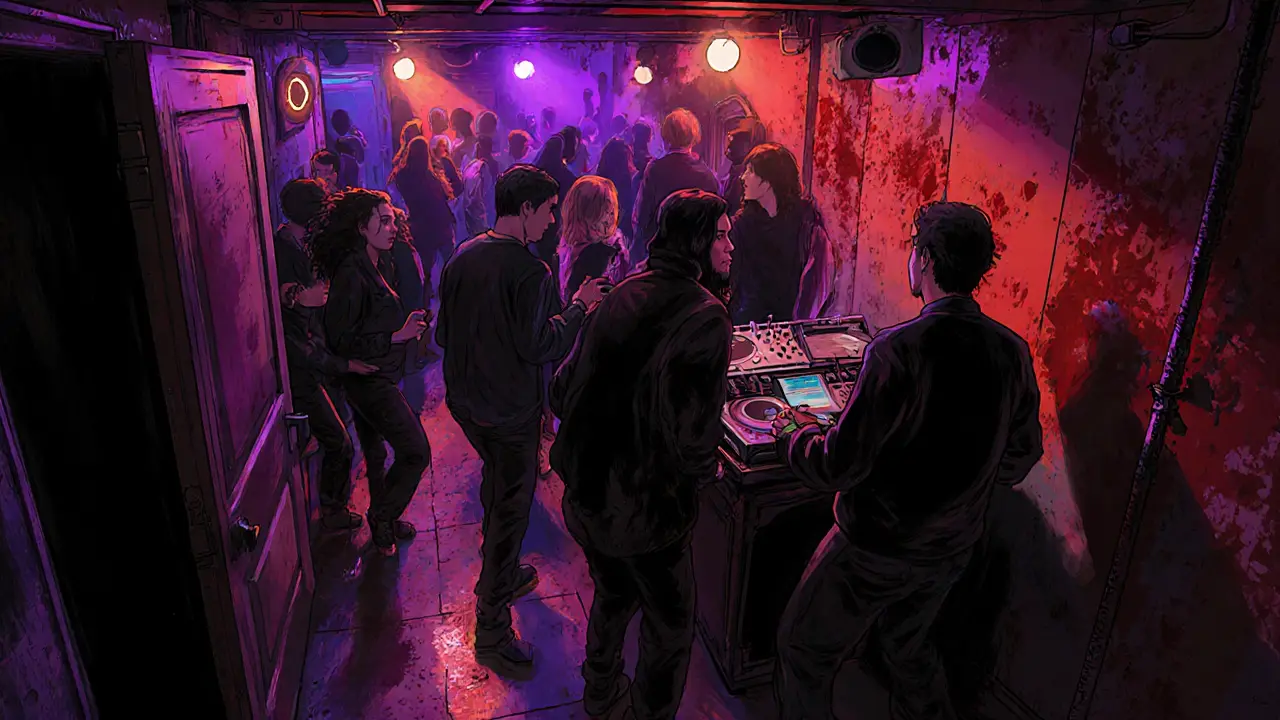
Where to find live jazz-no tourist traps
Paris has more jazz than any city in Europe. But most of it isn’t in the fancy venues with velvet chairs and English-speaking waiters. It’s in the small rooms where the musicians play because they love it, not because they’re being filmed for Instagram.
Le Caveau de la Huchette a cellar jazz club in the 5th arrondissement that’s been running since 1947, with no air conditioning, no menu, and musicians who’ve played here for 30 years is one of the last true jazz dives. You sit on wooden benches. The saxophone player might nod at you between songs. The wine is poured from a plastic jug. It’s not polished. It’s real.
For something newer, try Le Petit Bain a floating jazz bar on the Seine that moors near the Gare d’Austerlitz and hosts late-night sets with local musicians who blend jazz with electronic beats. You board a converted barge. The music floats over the water. People dance barefoot on the deck. It’s open until 4 a.m. on weekends.
Don’t go to Le Duc des Lombards unless you want to pay €40 for a drink and sit in a room that looks like a hotel lobby. The real jazz is where the musicians live-not where the tourists take photos.
Midnight snacks: Eat like a Parisian after the party
Parisians don’t stop eating when the music starts. They eat after the music. And the best food isn’t at Michelin-starred spots. It’s at the 24-hour kebab joints, the tiny crepe stands, and the boulangeries that open at 1 a.m. on weekends.
Chez Alain Miam Miam a legendary late-night kebab spot in the 13th arrondissement where the owner has been serving lamb sandwiches since 1985 and never changes the recipe. You order a döner, wrap it in paper, and eat it standing up while the streetlights flicker. It’s greasy. It’s perfect.
For something sweeter, head to La Pâtisserie des Rêves a pastry shop in the 11th arrondissement that opens at midnight on Fridays and Saturdays, selling fresh choux pastries and caramelized apple tarts. The line starts at 11:30 p.m. The smell hits you three blocks away. You’ll walk out with a box of pain au chocolat still warm from the oven.
Don’t bother with fancy restaurants after midnight. The real Parisian night ends with carbs, salt, and a little mess.
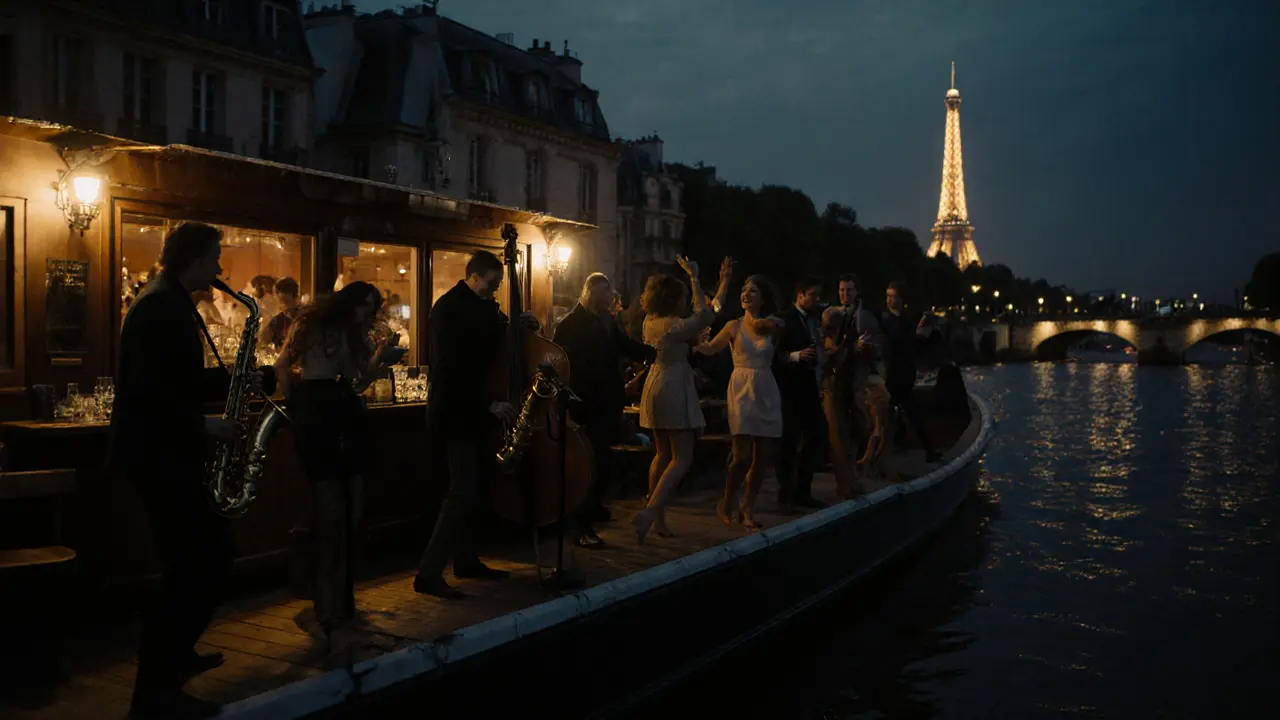
When to go-and when to stay home
Paris nightlife isn’t the same every night. Weeknights? Quiet. Locals are home. Weekends? Alive. But not all weekends are equal.
Thursdays are the secret. That’s when the real crowd shows up. Bars fill up around 10 p.m. Clubs open at 1 a.m. By 2 a.m., the dance floor is packed with people who actually live here-not tourists on a two-day trip.
Fridays and Saturdays? Crowded. But not always better. The clubs get louder, the prices go up, and the energy turns performative. If you want to feel like part of the city, go on a Thursday.
And avoid anything labeled “Parisian Night” or “French Party.” Those are for tourists who think Paris is a theme park. The real party doesn’t need a sign.
How to blend in-no tourist mistakes
You don’t need to wear black turtlenecks or carry a beret. But you do need to avoid these mistakes:
- Don’t walk around with a map in your hand. Locals know where they’re going. If you look lost, you stand out.
- Don’t ask for a “cocktail menu.” Just say, “Qu’est-ce que vous recommandez?” (What do you recommend?)
- Don’t take photos inside small bars. It’s rude. People are there to talk, not to be Instagram backdrops.
- Don’t order a mojito or a Long Island Iced Tea. You’ll be judged. Stick to wine, beer, or a pastis.
- Don’t expect everyone to speak English. Learn two phrases: “Merci” and “S’il vous plaît.” They go a long way.
Parisians don’t care if you’re foreign. But they notice if you act like you’re on a show. Be quiet. Be curious. Be present.
What you won’t find in Paris nightlife
You won’t find EDM festivals in the streets. You won’t find 100-foot neon signs. You won’t find bottle service with a view of the Eiffel Tower.
Paris doesn’t do loud. It does subtle. It doesn’t sell experiences. It offers moments. A shared bottle of wine with a stranger who becomes a friend. A saxophone solo that makes you stop walking. A croissant at 2 a.m. that tastes better than anything you’ve ever eaten.
That’s the Parisian night. Not a party. A rhythm. A way of living.
Is Paris nightlife safe at night?
Yes, but like any big city, use common sense. Stick to well-lit streets, avoid empty alleys after 2 a.m., and don’t flash valuables. The areas around Montmartre, Le Marais, and the 10th and 11th arrondissements are generally safe for nightlife. Avoid the outskirts of the city late at night.
What’s the best time to start a Parisian night?
Parisians don’t rush. Start with dinner around 8:30 p.m., then head to a wine bar at 10 p.m. Clubs don’t fill up until after midnight. The real energy begins at 1 a.m. and lasts until 4 a.m. If you’re out before 11 p.m., you’re not really in the rhythm yet.
Do I need to make reservations for Paris bars and clubs?
For most small bars and hidden clubs? No. You walk in. Some popular spots like Le Baron or La Cigale might have a wait on weekends, but they rarely take reservations. If a place requires a reservation, it’s probably not the real Parisian scene.
What’s the average cost for a night out in Paris?
You can have a full night out for under €30. A glass of wine: €6-€8. A beer: €5. A kebab at 2 a.m.: €7. A club entrance: €0-€10. Skip the tourist traps-those will cost you €50+ for two drinks and a bad view.
Are there any dress codes in Paris nightclubs?
Most clubs don’t have dress codes. No ties. No suits. No heels required. You’ll see jeans, sneakers, leather jackets, and even pajama pants. The only rule? Don’t look like you’re trying too hard. If you’re dressed like you’re going to a wedding, you’ll stand out. Keep it casual, cool, and comfortable.

